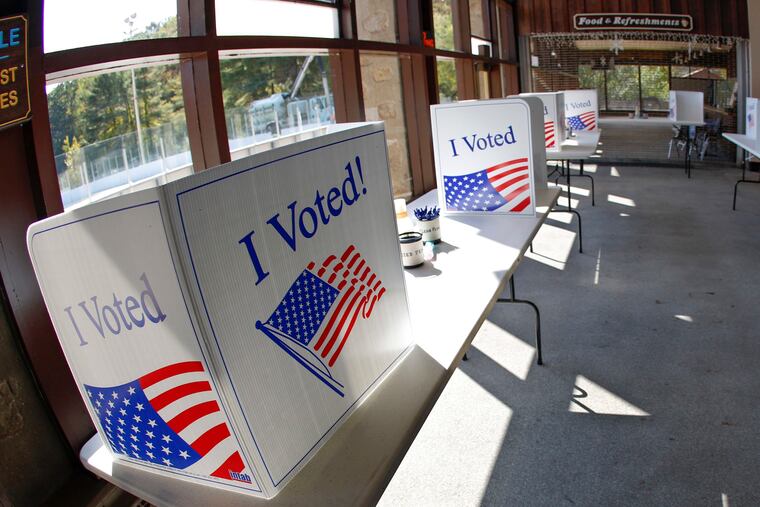People in long lines to cast ballots are also casting ballots for the importance of voting | Editorial
The uplifting images of ordinary Americans lined up to cast their ballots suggest that the importance of voting, and voting itself, are on the ballot.

With voting well underway across the Philadelphia region and nationwide, social media posts and news images of people lined up to cast ballots carry a surprising emotional punch. Some of us are reminded of news coverage of first-time voters from emerging democracies around the world; others recall the aftermath of 9/11, when we put aside political animosities for a sense of shared purpose.
As the most consequential presidential election in memory approaches, the pandemic rages, partisanship deepens, President Donald Trump tweetstorms, and the country is voting in what some predict will be unprecedented numbers.
Ironically, an epidemic of Republican challenges to voting rights seems to have galvanized many Americans. It’s also likely that recent court rulings to protect and enhance the process are encouraging Pennsylvanians and their peers in other states to register to vote, request and return mail ballots, or make plans to go to the polls in person. The registration deadline is today.
» READ MORE: 2020 PENNSYLVANIA ENDORSEMENT GUIDE
The Trump reelection campaign’s ham-handed attempt to intimidate early voters in Philadelphia by deploying “poll watchers” to satellite election offices (which are not polling places) was rejected in federal court. Harrisburg Republicans abandoned their cynical effort to establish a panel with subpoena powers, purportedly to ensure “election integrity.” And a federal judge dismissed a Trump campaign lawsuit seeking to prevent Pennsylvania from providing mail-in ballot drop boxes. That decision will enable Philadelphia and other counties statewide to enhance convenience for voters who want to deliver their ballots without relying on the U.S. Postal Service — the efficiency problems of which the Trump administration has been hyping, if not causing.
» READ MORE: HOW TO VOTE IN 2020
Late last week, the Pennsylvania Supreme Court agreed to hear yet another Republican challenge involving mail-in voting. GOP plaintiffs want ballots to be rejected solely because of perceived inconsistencies between voter signatures; Pennsylvania Secretary of State Kathy Boockvar, a Democrat, contends such rejections would increase the risk of arbitrary disenfranchisement. Meanwhile, a GOP appeal of an earlier state Supreme Court ruling to allow the counting of mail-in ballots received through Nov. 6 — in our view, a sound and practical decision — is before the U.S. Supreme Court.
Nevertheless, legal proceedings and pandemic realities have served to provide Pennsylvania voters with more flexibility and opportunity to cast their ballots than ever before. The freedom to choose among options such as voting early, by mail, or in person is good for our democracy — Trump’s spurious allegations about wholesale mail-in ballot fraud and stolen election results notwithstanding.
» READ MORE: What you need to know about voting in New Jersey — by mail or in person
Sadly, while the president’s increasingly desperate accusations may well inspire some voters, he also could discourage others from having confidence in the results, or from casting ballots at all. But by educating themselves, and exercising their precious right to vote, individuals can overcome even methodical partisan efforts to disenfranchise them.
So in the extraordinary presidential election season of this extraordinary year, the uplifting images of ordinary Americans lined up to cast their ballots suggest that the importance of voting, and voting itself, are on the ballot. So far, the right to vote, as well as the right to have one’s vote counted — and to have it count — seem to be winning. But the election is far from over.